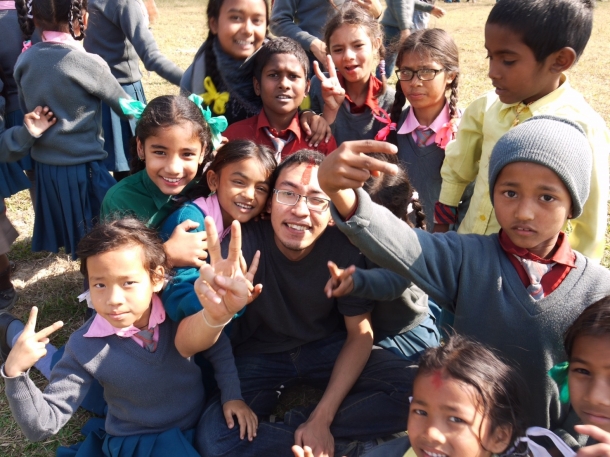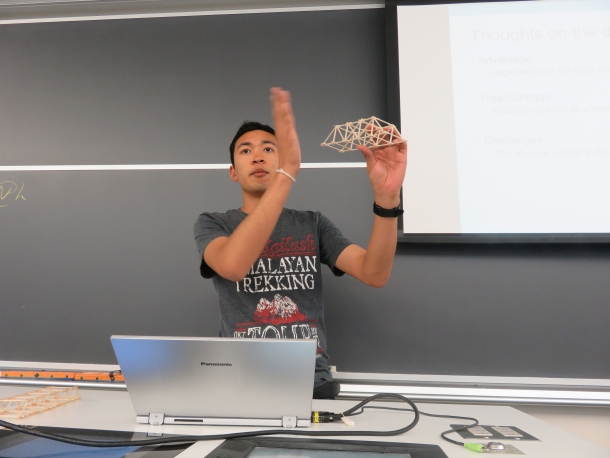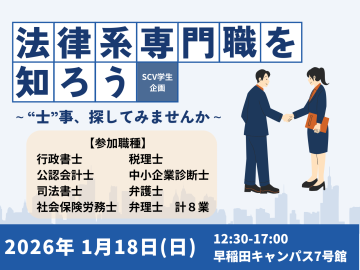I came to study Japan’s cutting-edge technology to contribute to the world’s infrastructure
Working at Yachiyo Engineering Co., Ltd.
From Nepal
Completed my program at the Graduate School of Creative Science and Engineering
Shranay STHAPIT

Diverse experiences allowed me to grow
Born in Nepal, I came to Japan when I was a child and studied Japanese in a Japanese elementary school until the second grade. I returned to Nepal afterward, but I wanted to come back to Japan, so I applied to Waseda University. I also went to graduate school because I wanted to continue my research in civil engineering.
During my first year as an undergraduate, I spent most of my time just studying, but in my second year I started working part-time at a convenience store and joined a volunteer group based in Nepal, while being in charge of translation and interpretation. After that, I worked as an English and mathematics teacher, as a campus tour guide to introduce Waseda University to high school students and their guardians visiting from overseas, and as an interpreter and translator to promote the use of a smartphone app created by an Israeli company in Japan. Through a variety of activities, I was able to come into contact with the world outside of university for the first time and learn how to adapt to a corporate environment. Through this, I was also able to improve my Japanese and English skills.

Volunteer activities in Nepal
Researching companies through internships while struggling with Japanese
Japan is renowned world-wide for its high level of civil engineering, which was why I had thought about working in Japan even before entering university. I had decided to pursue graduate school in my third year of university, but I also participated in information sessions and internships at research companies. And I continued researching companies while I was in graduate school, including while writing my graduation thesis.
I was interested in pursuing jobs in the civil engineering field, primarily among three types of companies: clients, general contractors, and construction consultants. As I went to each type of company for internships, I narrowed my goal towards being a construction consultant, as it would give me the freedom to create bridge designs from scratch. So I narrowed down the places where I wanted to work, and among them, Yachiyo Engineering became my first choice because the bridge design work that I wanted to do could be done in-house rather than outsourced. Yachiyo Engineering, having an international division and domestic division, suited my career objective of improving my civil engineering skills in the domestic division at first, and then transferring to the overseas division to contribute to the world’s infrastructure.
During the selection process, I struggled with web tests, like SPI. Among the three subjects of Japanese, mathematics, and English, I really struggled with Japanese, so my success depended on my mathematics and English skills. During the interview phase, even if I couldn’t find the words I wanted to convey, I was able to use gestures and words I knew to express myself to some extent. However, I struggled most during the web and written tests, because I didn’t have alternative ways of conveying my words.
I felt that it was an advantage for me that they were interested in my background as a Nepalese, so I fully emphasized that point and strongly highlighted that I could contribute to the company in both the domestic and international divisions with my language skills.
I gathered information on the entire job-hunting process at the Career Center, which has job-hunting explanations aimed at international students. Waseda Moodle has a range of videos available about job hunting, from self-analysis to company research, so I was able to get a comprehensive understanding of the overall job-hunting process.

Shranay studied bridge engineering at Waseda University
Being busy is just a part of improving your skills
I am currently in my second year in the company. After three years of practical experience, I will be able to take the Professional Engineer Examination, so I am currently working hard as an Associate Professional Engineer. Among the projects I’m in charge of is the construction of a new bridge, which I have wanted to do since before I joined the company, and my role is to create analysis models and verify the safety of the bridge mainly from a structural point of view. Bridge design projects often span a long period, but I’m looking forward to it because I’ve heard from my seniors that seeing the construction completion of a bridge that you designed is one of the greatest feelings in the world.
I find my work interesting when I feel that I have grown compared to when I joined the company, or when I’m able to contribute more to the project than what was originally required of me. In addition, I am happy to be able to contribute with my English skills, as I am involved in the production of manuals regarding the company’s DX and other overseas technology.
When I was a student, things like what papers to write and classes to attend were set, but at work, I have to broaden my horizons to multiple projects and not just one task. I think that being busy is just a part of working, but it gives you a chance to improve yourself as an engineer in a wide range of projects.
Be flexible and make the most of your strengths while job hunting
In job hunting, having a career plan is vital, but it is also important to have flexibility. Things do not always proceed the way you think they will. Until I got a job, there was a time when I thought it would be more interesting to work as a general contractor than a construction consultant, or that maybe I would be more interested in railways instead of bridges, and I changed my mind many times before making my decision. I think it is better not to narrow your choices down too much from an early stage because being lost while exploring different options is just a necessary step in finding the right career path.
Also, when doing group work with Japanese students during my internships, I was always worried about my Japanese language ability, and I was worried that I would be holding back my group members. At times like that, I sometimes felt that I should have taken more Japanese classes during my undergraduate years and actively talked more with Japanese people. However, instead of focusing on fixing my weaknesses, I was able to focus on my strengths, such as my English ability, and that gave me a better result. Even if Japanese isn’t your strong suit, remember that you can always compete in a different field by highlighting what makes you unique to the others around you, and using that to your advantage.
※Read the original report in Japanese from HERE!






